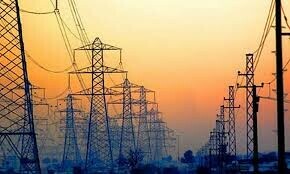ISLAMABAD: The country’s oil industry has asked the government to withdraw “double taxation” at provincial and federal levels through general sales tax on services and goods or allow a proportionate increase in the prices of petroleum products.
The industry feels aggrieved by withdrawal of two separate statutory regulatory orders (SROs) by the Ministry of Finance — of Feb 6, 2008 and March 26, 2014 — to disallow provincial sales taxes as input tax adjustment at federal level.
Through the Finance Bill 2016-17, the government has disallowed the input tax claim of provincial sales tax on services against that of goods under Sales Tax Act of 1990 with effect from July 1, 2017. This meant the oil industry would not be entitled to get adjustment for tax on services like port charges, Fauji Oil Terminal and Distribution Company Ltd (Fotco) charges, wharfage, white oil pipeline charges and other service charges.
This came at a time when the oil industry was already in courts against annual fees and taxes imposed by the Oil and Gas Regulatory Authority (Ogra) on oil marketing companies (OMCs) and refineries.
A senior official at the Ministry of Petroleum and Natural Resources told Dawn that the ministry had taken up the issue of double impact of sales tax with the finance ministry for a resolution and engaged the industry in talks on the issue of Ogra taxes to avoid a situation of product shortages. A meeting convened on the issue by the petroleum minister, but presided over by secretary petroleum, ended inconclusively on Wednesday.
The oil industry has reported that almost all the goods and services it procures attracted sales tax — provincial sales tax on services and federal sales tax on goods — which is paid by the oil firms and recorded in their books as ‘input tax’ receivable and net-off (adjusted) against output of federal sales tax charged to the consumers on sale of petroleum products.
At the time of payment to the federal treasury, this output sales tax is offset against the input sales tax and the differential is paid into the treasury. With the disallowance under the 2016-17 finance bill of provincial sales taxes as input, all services being received by the oil companies have to cost more with the provincial services tax becoming a cost for the companies. “This is against the basic concept of value added taxation (VAT) on which sales tax is based,” the industry has argued.
“This in turn has an impact on the price of oil products in the country as services such as white oil pipeline throughput charges, Fotco charges, wharfage, Karachi Port Trust (KPT) charges and other services related to product imports and movements will cost more by the value of the services sales tax, increasing the cost of fuel to the consumers,” the industry has written to the government.
Moreover, provincial sales tax on other services not directly related to oil products but incurred as part of operations will also become cost for the oil companies which would impact their profitability. Given the regulated and fixed margin environment governing the downstream and midstream oil industry, it was becoming impossible for the oil firms to absorb this as a cost of operation.
A government official said the changes in finance bill 2016-17 regarding input tax adjustments on oil-related services and goods were made without prior consultation with the petroleum ministry. “The problem of serious and immediate nature is that even the petroleum ministry was caught off guard as price adjustment for the next month (August) becomes due by this weekend with additional cost impact arising out of tax changes,” he said.
Already, the oil industry and the regulator fighting a case before the Islamabad High Court on recently notified ‘exorbitant fees’ on the downstream oil sector. The oil companies believe that fresh fee structure notified by the regulator was threatening the viability of the downstream oil sector.
Under recently notified Pakistan Oil (Refining, Blending, Transportation, Storage and Marketing) Rules 2016, all the oil refineries, marketing and oil pipeline companies are required to pay Rs2 million non-refundable fee for grant, renewal, modification, extension, assignment, review, transfer, amendment, relocation or re-issuance of a licence.
Likewise, oil blending or reclamation or grease plants are to pay Rs50,000 fee while lubricant marketing companies are required to pay Rs1m fee. Oil storage and testing facilities are required to pay Rs100,000 and Rs500,000 fee, respectively.
Moreover, all these entities are also required to pay 50pc of licence fee for modification, extension, transfer or review of their licences. On top of that, every refinery, OMC, lubricant marketing company and pipeline is also required to pay 0.005pc of gross sales.
The new rules also entail maximum validity of a licence for 30 years for a refinery and renewal for a maximum of 15 years. The companies say that once they have obtained a licence and start operating successfully and contributing to the national kitty and the economy, they should not have to re-apply for a new licence.
They are also opposed to a new fee on all the companies at the rate of 0.005pc of gross sales, saying this was a form of indirect taxation — a power that could be exercised only by the government or parliament. Given the regulated margin environment, this recurring fee was unjustified and a form of double taxation “which the industry is not willing to pay”.
Published in Dawn, July 28th, 2016












































Dear visitor, the comments section is undergoing an overhaul and will return soon.